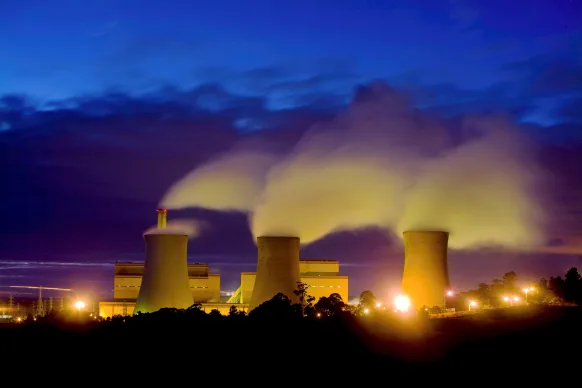The World Health Organization’s top environment expert has asked politicians who are delaying climate action to prepared to live with the human fallout of their choices.
“Anytime you postpone, OK, are you ready to cope with that?” said Maria Neira, the doctor in charge of environmental health at the WHO. “You have to live with that weight on your shoulders of the fact that you are at least not saving those lives – I don’t want to say killing – but at least not protecting the lives of those people.”
Recall that the World Meteorological Organization and dozens of research partners including the WHO, issued a stark warning that climate change threatens to roll back decades of progress in human health on Thursday.
Speaking on the sidelines of the world health summit in Berlin last month, Neira said that doctors would make policymakers understand the damage done by burning fossil fuels at the upcoming Cop28 climate conference, which will devote a day to health for the first time in its history.
“Nobody will be able to say ‘I didn’t know’,” said Neira. “No one will leave Cop this year saying ‘Oh, I didn’t know health was affected’. We will make sure that this will not be the case. Everyone needs to know this is not just about climate, polar bears and glaciers. This is about my lungs and your lungs.”
Read also: Study shows world ill-prepared to stop climate crisis reversing progress on health
Findings show that Coal, oil and gas release toxic particles when burned that kill millions of people each year. Some of the emissions also heat the planet, making extreme weather more violent and increasing the chances of harvests failing and some diseases spreading.
“Whether they like it or not – whether they know it or not – the negotiators at Cop are negotiating with our health,” Neira said.
Doctors are also said to have started to shout louder about the damage that weak climate policies do to human health as scientific and medical evidence has mounted.
Last year, the WHO director general, Tedros Adhanom Ghebreyesus, said subsidising and burning fossil fuels was “an act of self-sabotage”.
Restating his words, Neira said that there was no longer any way for public health experts to escape debates around energy. The WHO has recognised its importance to health.
The WHO estimates that environmental risk factors make up 25% of the global burden of disease. Strong climate action would also save millions of lives that are lost to other risk factors.
“If you stop burning fossil fuels, one of the most immediate benefits will be the contribution to reduce the 7 million deaths that are occurring due to exposure to air pollution,” Neira said, adding that a shift to more sustainable and healthy diets could save up to 5 million lives a year, while cleaning up the transport sector would save millions more through less sedentary lifestyles and exposure to air pollution.
Story was adapted from the Guardian.
